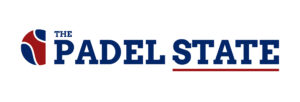As was discussed in last week’s article leading up to their USPA 1000 tournament, PADELphia has had many firsts in their history, including being the first venue to offer publicly accessible pop-up padel courts in the U.S.
To that list you can now add the fact that they are among the very first U.S. padel clubs to insist on paying out equal prize money to the winners of their big men’s and women’s tournament — which is something their founder Scott Grote is obviously very proud of.
In fact, shortly after the conclusion of their tournament Grote reached out to me, but not to fill me in on how the weekend went or brag about the big names who came to play, mind you.
Instead, he wanted to put me in touch with his wife, Jennifer Lynn (an award-winning broadcast journalist for NPR affiliate WHYY in Philadelphia, as I later discovered) to talk about why they feel offering equal prize money for men and women is so important as padel continues to grow and evolve here in the U.S.

Bringing an “Old” Concept to a “New” Sport
While all four Grand Slams in tennis now offer equal prize money for men and women (thanks almost entirely to the US Open deciding to lead the charge clear back in 1973), things aren’t nearly as clear cut in other pro racket sports like squash and padel, especially here in the U.S. where the world’s fastest growing sport is so “new.”
Of their inaugural USPA tournament last year, Lynn recalls, “The trophies were presented at the end of the tournament and people were gathered around for pictures and such. The top men gladly received their checks and their trophies and smiled for the pictures. But I saw that the top women began to walk away soon after they got their trophies.”
“Everyone was like, ‘Hey, hey, wait… we have something else here for you!” Lynn continues with a laugh before telling me, “It was like they weren’t expecting any money. And then when they found out they were not only receiving money, but also the same amount as the men, you could tell it was mind-blowing for them. They talked about it incessantly afterwards. They really just couldn’t believe it.”
She also tells me, “I was shocked, too, because I didn’t really have any experience with this and I assumed, of course, it would be equal. But I had no idea they weren’t expecting that at all. Everyone was saying what a big deal this was and something that had never been done before.”
An Easy Decision (x2)
Granted, there have been other notable U.S. padel tournaments to offer equal prize money to winners of both top divisions, including the USPA Major that was held at P1 Padel in Vegas earlier this year.

But as Grote pointed out to me when he initially put me in touch with his wife, PADELphia has now been proudly doing it for two years running (which is practically an eternity in the timeline of the U.S. padel world).
Lynn explains, “The organizers of our first two national tournaments at PADELphia had a choice to make. The question was, ‘do we give out equal prize money to the top women and the men in the Division 1 category?’ All hands went up and the answer was a resounding ‘yes!'”
She further explains, “I talked to some of the women who came last year and they said generally they can barely afford to attend the tournaments. They have to pay for travel and hotels… and women — still often more than men — have to deal with the question of paying for child care when they travel. Plus, many of the women are not sponsored to the same degree that many of the men are. So, I’m sure any prize money we can offer them is helpful.”
In my various conversations with U.S. padel star Brittany Dubins — who actually just won the tournament at PADELphia — she has repeatedly emphasized the importance of her sponsorships in allowing her to pursue her padel dreams. During one interview she even told me, “NOX is my padel racket and shoe sponsor and Original Penguin is my apparel sponsor. I love them both so much!”
But, obviously, not everyone can be Brittany Dubins. So, for pro-level padel to continue to grow and thrive here in the U.S. on both the women’s and men’s side of things, more organizations like PADELphia and P1 will have to step up and champion the cause of equal prize money payouts.
The Next Step
While Scott Grote and Jennifer Lynn are happy to be among those leading the charge on this front for now, they are also hopeful it will inspire others to follow their lead.
Lynn tells me, “After what we saw at last year’s tournament I turned to Scott and said, ‘This is really a news story. And it’s a great story in this day-and-age when we’re seeing a resurgence of the conversation around equal pay in sports.”
Ultimately, she says, “Look, this is a growing sport in the U.S. So why not do things right from the get-go and set a precedent that others can look up to? This is all so fresh and we have an opportunity to set it straight in the record books going forward that things should be equal.”
To that end, she jokingly concedes that yes, she and Scott both played in the tournament, and no, neither won any prize money.
Want to get cutting-edge padel news and updates like this delivered directly to your inbox each week? Simply click here to sign up for our free “State of the Game” newsletter now.













